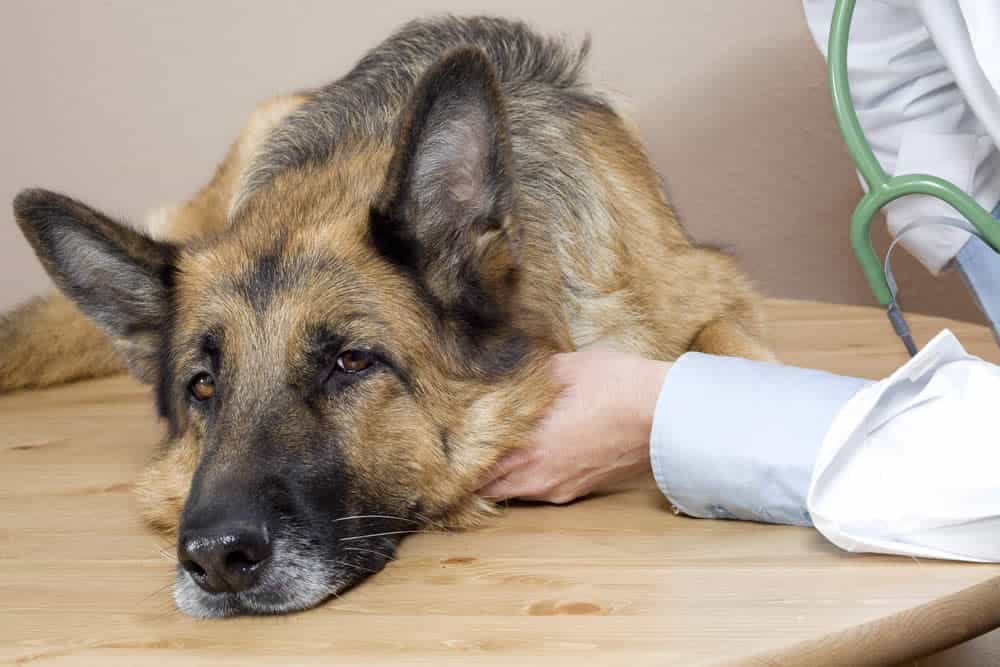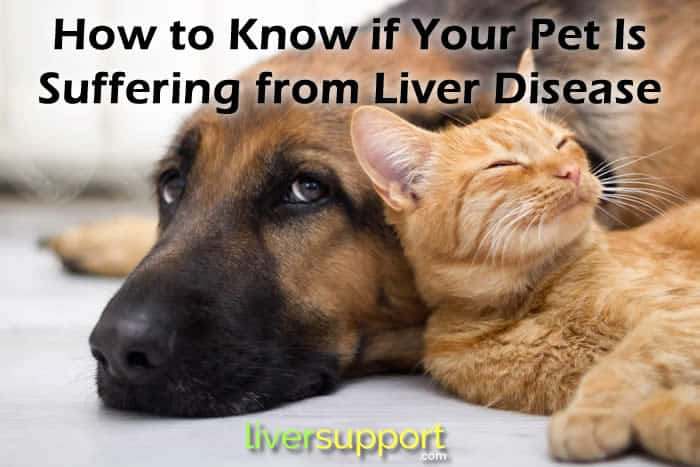
Previous
What Foods Are Good for Liver Repair?

Next
What Does Reiki Have to Do with Your Liver?
How to Know if Your Pet Is Suffering from Liver Disease
Find out the signs and symptoms of liver disease in cats and dogs, and how you can help prevent and treat it.
Your pets are your family. You care for them as if they were your own children. However, just because they aren’t human doesn’t mean they are exempt from the same diseases and ailments.
Your dog or cat may be suffering from one common pet condition that is also common in humans: liver disease.
Unfortunately, most pet owners don’t know the signs of liver disease in pets, nor do they know how to go about treating the condition.
No longer will this be a worry.
Here is everything you need to know about liver disease in cats and dogs.
What Is Liver Disease?
The liver carries out a variety of functions in the body, ranging from blood filtration and detoxification to producing, secreting, and storing vital bodily compounds (1). These functions, among countless others, are crucial to the body functioning correctly.
When the liver is damaged, it cannot do its job. This can have detrimental effects on your health or your pet’s health, and should be avoided at all costs.
Such impairment can come from the onset of liver disease. As the name implies, liver disease impairs the liver and its ability to carry out its functions.
Liver disease is known for its stages, one more serious and harmful than the next.
- Inflammation: The liver becomes inflamed and enlarged.
- Fibrosis: The liver begins to scar. Harmful scar tissue begins to replace healthy liver tissue.
- Cirrhosis: Widespread distortion of the liver’s internal structure occurs as more and more healthy liver tissue is replaced with scar tissue.
If the liver becomes damaged beyond repair, liver failure may ensue. Such an occurrence is life-threatening. It is because of these reasons that liver disease should not be taken lightly and should be treated immediately, for the sake of your life or your pet’s life (1).
My Pets and Liver Disease
Dogs are the staple pet of American households. According to the Insurance Information Institute, over 60 million households in the United States have a pet dog, the greatest number of any type of pet. Following close behind in second is cats, appearing in over 47 million American households (5).
Despite their popularity, they are still at risk for life-threatening conditions like liver disease.
4 Risk Factors
There are a variety of factors that may make your dog or cat susceptible to liver disease.
These may include:
- Age: The older your pet is, the more susceptible he is to diseases in general, including liver disease.
- Medications: If you give your dog or cat medications containing acetaminophen to treat other conditions, it may be damaging his liver. The same goes for humans (think Tylenol).
- Breed: Certain breeds are more susceptible than others to liver disease. Dog breeds like Rottweilers, Yorkshire Terriers and Cocker Spaniels, as well as Siamese cats, are predisposed to develop liver disease and, in some cases, may be born with it.
- Obesity: Overweight cats and dogs are prone to liver disease, particularly fatty liver disease.
While none of these factors are guaranteed to lead to liver disease, it is a possibility. Consult a veterinarian to ensure you are taking the steps to limit these chances (2, 3).
12 Symptoms of Liver Disease in Pets
Signs of liver disease can vary from dog to dog and cat to cat.
Nonetheless, these are just some of the symptoms you should look out for:

- Digestive issues (diarrhea, constipation)
- Vomiting
- Loss of appetite
- Sudden weight loss
- Jaundice (yellowing of the skin or whites of eyes)
- Excessive drooling
- Changes in urine (usually darker color)
- Lack of energy
- Increase in thirst
- Eye discharge
- Sinus issues
- General behavioral changes
Many of these signs don’t immediately scream “liver disease,” as many are common and generic symptoms that you wouldn’t associate with the liver.
What could a little excess saliva possibly have to do with the liver? Well, the liver plays a crucial role in the body and touches nearly every biological body system, ranging from the digestive system to the circulatory system.
Because of its involvement all over the body, an impaired liver can have consequences all over the body. Such consequences can take very different forms, from a change in urine color to a rapid loss of weight.
Of course, your dog may be vomiting because he ate something disagreeable and your cat may not have an appetite because she ate too much earlier in the day. However, liver disease should never be counted out, especially if these behaviors become common (2, 3, 4).
What Should I Do?
Liver disease is serious and can have detrimental effects on your pet’s health. If your dog or cat is experiencing any of the symptoms outlined above, speak to your veterinarian about the possibility of liver disease. It is easier to treat liver disease in its earlier stages, so do not hesitate to take the necessary courses of action.
Some of these may include:
- Diet Change: A healthy diet is essential to limiting liver damage. Feed your pet food that is filled with vitamins and minerals and limit any processed or fatty foods: the toxins will only do more to harm the liver.
- Supplements: Supplements that benefit the liver, like milk thistle and CBD oil, can help to heal the liver after liver disease has taken hold.
- Medication: Some medications that regulate liver activity may need to be prescribed, while medications your pet is already taking may need to be re-evaluated to ensure they are not taking any toll on the liver.
With these steps, you can prevent or treat your dog or cat’s liver disease (4).
The Bottom Line
Liver disease is serious. When undiagnosed, it can wreak havoc on the liver and, consequently, the rest of the body. The same goes for our pets, as liver disease is common in the dogs and cats we care for each day.
Be on the lookout for abnormal behavior that your pet may repeatedly exhibit. It could just be that your dog or cat has an upset stomach. However, it also could be a side effect of liver disease, and should be treated immediately.
(1) American Liver Foundation. (n.d.). The Progression of Liver Disease. Retrieved June 3,
2019, from https://liverfoundation.org/for-patients/about-the-liver/the-progression-of-liver-disease/#1503433005041-1b714e18-b29f
(2) Hill's Pet Nutrition. (n.d.). Facts About Liver Disease in Dogs. Retrieved June 3, 2019, from
https://www.hillspet.com/dog-care/healthcare/liver-disease-in-dogs
(3) Hill's Pet Nutrition. (n.d.). Liver Disease in Your Cat: Causes, Signs & Symptoms. Retrieved
June 3, 2019, from https://www.hillspet.com/cat-care/healthcare/cat-liver-disease
(4) Honest Paws. (2018, December 10). Liver Disease in Dogs: Know The Signs Before It's Too
Late. Retrieved June 3, 2019, from https://www.honestpaws.com/blogs/pet-care/liver-disease-in-dogs
(5) Insurance Information Institute. (n.d.). Facts Statistics: Pet Statistics. Retrieved June 3,
2019, from https://www.iii.org/fact-statistic/facts-statistics-pet-statistics






